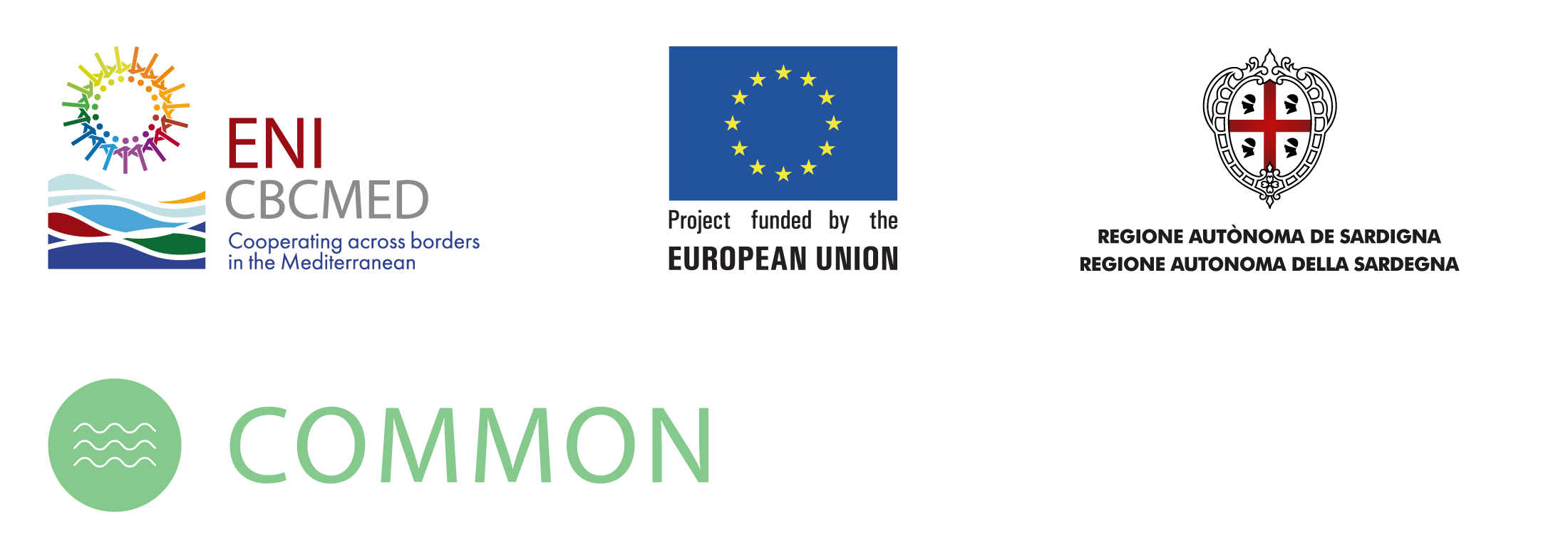The emergency of plastic pollution concerns the whole Mediterranean: in Lebanon, 124 thousand kg of unsorted plastic per day
Launched on July 18, 2020 at Beit Al Mamlouk, Tyre, the COMMON project (COastal Management and MOnitoring Network for tackling marine litter in Mediterranean Sea), a new European project which aims at building a collaboration network between Italy, Tunisia and Lebanon, to support a correct management of Marine Litter. The waste of sea has become a serious concern in the Mediterranean basin, which calls the need for a collective response with an integrated approach, in which the various political actors and civil society can work together and in a coordinated way. The event was presented by Eng. Hasan Dbouk (TCNR committee president, President of the Union of Tyr Municipalities), Mr. Malek Ghandour (AMWAJ President), Dr. Fadi Karam (JTS officer – Lebanon), Mohamad Itani (ENI CBC MED Focal Point – Lebanon), Mr. Hisham Abou Jaoude (TE COMMON-AMWAJ) and Dr. Nahed Msayleb (PM COMMON- TCNR), in the presence of different stakeholders, municipalities, journalists and citizens. Tyre Coast that extends from Litani River estuary (Al Qasimiye) to Ras Al Ain is one of the five pilot areas of the project, where awareness campaigns and monitoring activities will take place, both to study the issue and to preserve the environment.
The COMMON project, funded by the European Union under the ENI CBC MED programme, with a budget of 2.2 million euros, gathers the Amwaj of the Environment NGO and the Tyre Coast Nature Reserve from Lebanon, the Italian NGO Legambiente, the University of Siena, and the Mediterranean Agronomic Institute of Bari from Italy, and the National Institute of Sciences and Technologies of the Sea and the University of Sousse from Tunisia. One common goal: tackling Marine Litter using the principles of Integrated Coastal Zone Management (ICZM) in 5 pilot areas, two in Italy (Maremma, Salento), two in Tunisia (Kuriat Island e Monastir) and one in Lebanon (Tyre) in order to develop the use and monitoring of resources and promote an effective participatory approach involving stakeholders and local communities, with the ambition to test a model possibly transferable throughout the whole Mediterranean basin.
COMMON wants to improve the awareness on marine litter issue, to develop training and capacity building activities for local and regional authorities, Marine Protected Areas, Sea Turtle Rescue centres and citizens in general. It will activate awareness-raising campaigns and networking activities, will involve local communities and economic operators in the integration of marine waste management and disposal with the ICZM approach. Given the nature of marine environments, not isolated from the surrounding context, sea-related problems can only be tackled at the community level and with a multi-stakeholder approach.
“On average, waste generation in Lebanon is estimated at 481 kg per capita every year, which is considered high in comparison with countries with similar economies. This amounts to 6,555 tons of municipal solid wastes daily”, says Nahed Msayleb, Director of Tyre Coast Nature Reserve and project manager at TCNR. “85% of solid wastes get disposed-off in landfills without any treatment or sorting, some of which are marine. Recent studies showed that 80% of marine litter in Lebanon is composed of plastic, which requires 1000 years to fully decompose, making it the most dangerous litter type on marine biodiversity, with 124,000kg daily disposed-off inadequately. Moreover, the Lebanese shoreline is under huge litter pressure generated from dumpsters on the coastal line, rubbles generated from public construction projects, domestic/Municipal Wastewaters and Factories’ flows that get injected in the sea. So, there is the need to projects like COMMON, to tackle the waste problem in an integrated and coordinated way”.
“Tyre, is a historical peninsula listed on the World Heritage List, and located in the middle of the pilot area chosen for the implementation of the project on the coast of South Lebanon that extends from Litani River estuary (Al Qasimiye), to Ras Al Bayada. This coast is distinguished by the sandy beach, the agricultural lands for citrus, bananas, vegetables, trade ports, fishermen, natural springs, marine fountains, and marine turtle nesting sites” described Mr. Malek Ghandour, president of AMWAJ. “All these characteristics prompted to work on issuing Tyre Coast Nature Reserve law (South of Tyre – 1998) and the Abbasiye Coast Reserve law (North of Tyre – 2020) for an integrated management of the Lebanese coast in partnership with governmental and non-governmental sectors and municipalities, on announcing and managing marine reserves for important sites for protection, and supporting local communities through improving livelihood and economic resources and involving them in the protection and management of resources in a balanced and sustainable way”.
